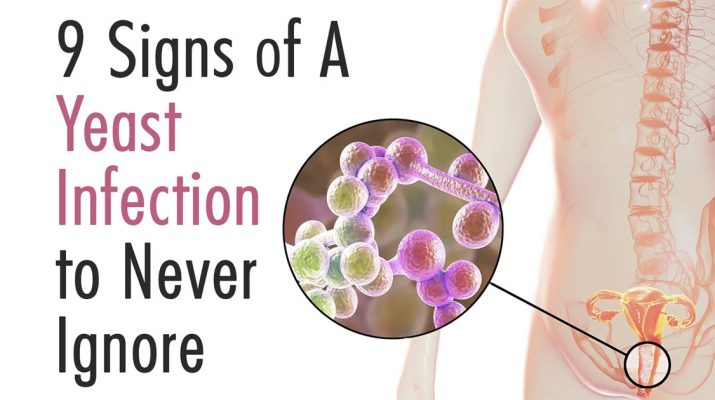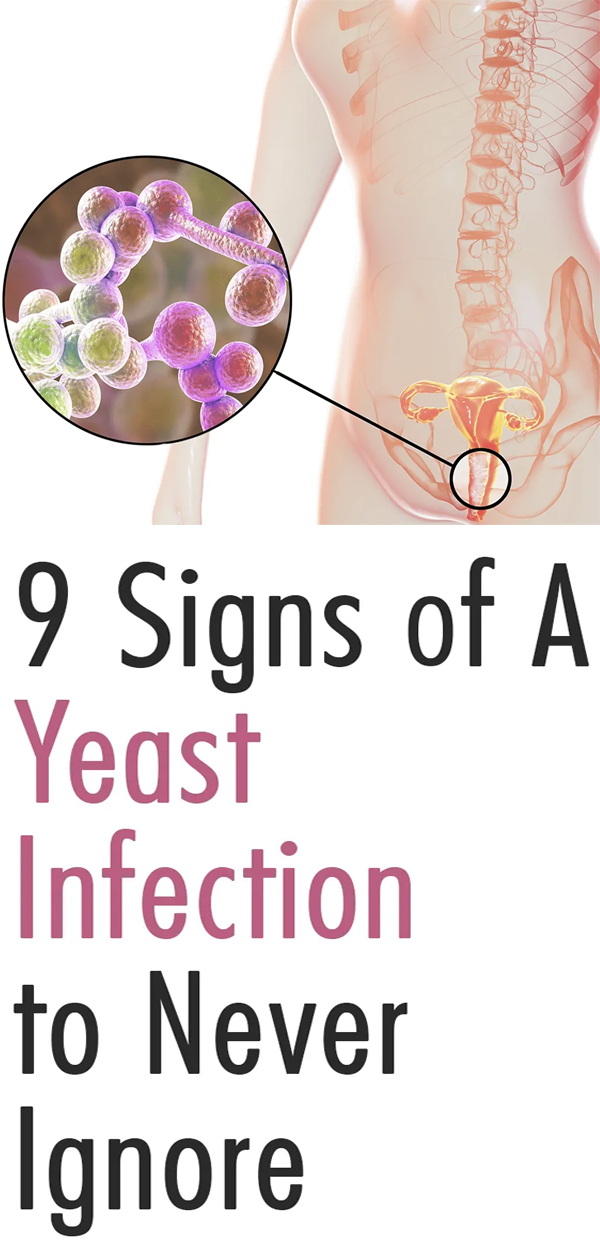“A yeast infection is nothing more than an overgrowth of microorganisms that are already present…” – Dr. Katherine McHugh
A yeast infection is a common condition that develops in the genitals, feet, or mouth. However, it’s mostly associated with a female problem because 75 percent of women get a yeast infection at some point in their life, as per a study in The Lancet journal. Sometimes, however, a yeast infection could be a symptom of another health condition and here are some signs that you should never ignore:
Here Are 9 Signs Of A Yeast Infection To Never Ignore
1. You Have A Thick And Chunky Discharge.
It’s normal to experience vaginal discharge with clear to a milky consistency, as your body goes through the monthly ovulation process. But a thick and excessive discharge, with some curdling similar to the consistency of cottage cheese, could be very uncomfortable.
Women don’t usually complain about normal discharge but a yeast infection can feel icky and uncomfortable. While this symptom is treatable, you should consider getting tested for any presence of Candida albicans in your system. According to the Central European Journal of Urology, an excess of this fungus might trigger a urinary tract infection (UTI). If left untreated, a UTI could cause serious problems in the kidneys.
2. Your Private Part Has A Strong And Abnormal Odor.
Some discharges, including a yeast infection discharge, doesn’t have a strong odor. But when there’s an unpleasant stench, you should definitely have this checked. A yeast infection might not be the primary reason behind the abnormal vaginal odor. Rather, it could be a symptom of a different condition. You might have developed a common problem like bacterial vaginitis or trichomoniasis. However, the smell might also be a symptom of cancer, as per the Mayo Clinic.
Aside from practicing good hygiene, you may need to take prescription medication to get rid of this problem. Also, doctors advise against douching since this will disrupt the natural acidity in your vagina and lead to more serious health problems.
3. Your Private Part Feels Very Dry.
A yeast infection causes vaginal dryness because of an acid-alkaline (pH) imbalance in your system. This condition is also linked to lower estrogen levels, which is common to women going through menopause.
Sometimes, the medication or birth control pills you’re taking may be the cause of the dryness, so ask your doctor if you can switch to a different brand. Vaginal dryness can lead to pain during intercourse, as well as a drop in the libido. Some women use lubricants for relief but studies show that lubricants might only worsen the symptoms of yeast infection.
4. You Have An Itch In Your Crotch That’s Very Intense.
If you’re itching, it means your vagina is reacting to the yeast infection and scratching it won’t soothe the problem. The more you scratch, the worse it will get because your vagina is already irritated and inflamed.
A doctor might prescribe anti-fungal treatments that will lessen the itch, but you also have to make a few changes to get some relief. Try not to use feminine products that have strong perfumed scents. Also, get yourself checked for pubic lice as this might actually be the problem, and not a yeast infection.
5. You Feel A Burning Sensation As You Urinate Or When You’re Intimate.
Do you feel any burn when you urinate? Does it hurt when you’re in an intimate moment with your partner? It’s likely because the yeast infection caused some swelling and soreness around the vulva. However, you should never ignore or tolerate pain. Seek a doctor’s help right away, as this might be a sign of endometriosis. This condition can progress to complications such as infertility or ovarian cancer.
6. You Get No Relief From Taking Yeast Infection Medications.
If you’ve been prescribed a yeast infection medication but feel no signs of improvement after a week, then you might have a resistant strain. You may need to change your treatment plan. However, don’t do this without getting a consult first. See a doctor who can order culture in order to determine what’s really affecting your system.
7. You Experience Abdominal Pain.
If you’ve been diagnosed with a yeast infection but feel pain in your abdomen, don’t delay going back to the doctor. Yeast infection affects your vagina and vulva only. If the pain extends to the abdomen, then you need to have your cervix and uterus checked. Some vaginal problems start off with similar symptoms as a yeast infection.
8. You Develop A Fever.
You don’t develop a fever with a yeast infection. However, if you have a vaginal discharge along with a fever, then it’s likely a symptom of chlamydia or gonorrhea. It might also be an indication of a kidney infection. Visit the doctor right away for proper treatment.
9. Your Partner Has Similar Symptoms Too.
A yeast infection is not contagious, as even children can develop an overgrowth of the Candida bacteria in the mouth (thrush). However, if your partner shows similar symptoms as yours, it’s important that he gets tested as well to rule out any other problems. While this is not a transmittable condition, it’s best to avoid getting intimate with your partner until all the symptoms have cleared. This way, you avoid the additional irritation, discomfort, and pain that can come with having a yeast infection.
Final Thoughts
With proper treatment and positive doctor-patient interaction, a yeast infection can clear up in roughly a week, but this can also be an infection that recurs. If this is the case, tell your doctor how often you experience the discomfort so you can have additional tests and prevent other potential diseases from developing. Remember positive thinking because it’s time to take action.


